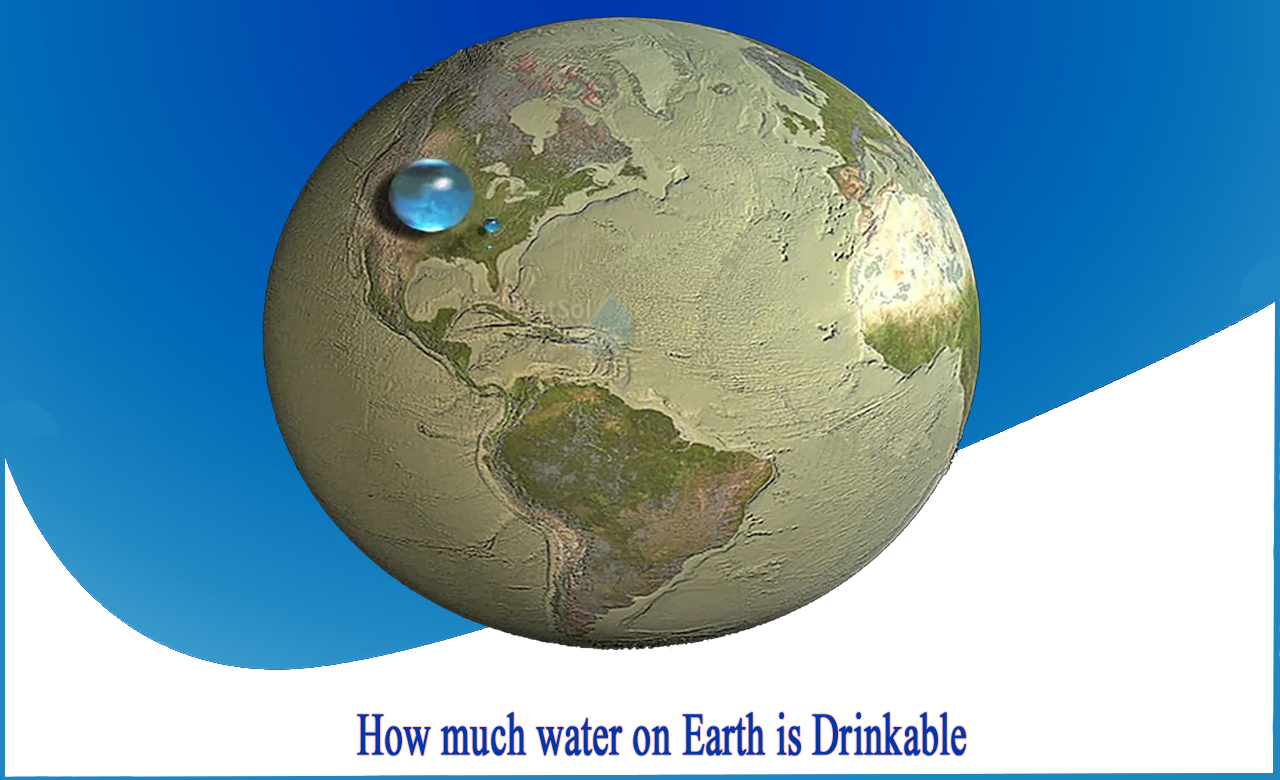How much water on Earth is drinkable?
The seas contain around 98% of the water on the surface of the Earth. Freshwater accounts for less than 3% of all water on the planet, with glaciers storing almost 65% of this potable water. Freshwater rivers, streams, lakes, and dams contain 1% of drinkable water, whereas groundwater contains 0.3 percent.
All life forms require potable water to survive. Every living thing on the planet is made up of more than 60% water. The ability of every living entity to get freshwater, which is not evenly distributed on Earth, determines the viability of life.
Restoration of Freshwater by Water and Wastewater treatment plants
Water and Wastewater treatment is the process of restoring desirable quality to water that has been utilized and/or contaminated by humans or nature. Chemical, biological, or physical processes, or a combination of these, may be used in treatment. Water can be treated to any desired level of purity; but, as purity increases, so does the cost of achieving that purity. Water quality is determined by its intended purposes, such as aquatic life, drinking water, or irrigation. The primary goals are threefold:
1: Separate the solid fraction from the liquid fraction and concentrate the solids collected from the carrier water;
2: Eliminate and/or render innocuous materials that will cause adverse effects when the effluent and resulting residuals are subjected to ultimate disposal;
3: Maximize the reuse potential of treated wastewater and residuals.
Restoration of Freshwater by Water Reuse
The degree of treatment should be determined by the quality criteria of the water's intended usage. As a result, if wastewater can be used in a positive way without producing negative environmental or health impacts, it should be regarded as a valuable resource and utilized as such. Water reuse is now motivated by more than just a moral need to protect this vital resource.
Many industries and municipalities regard it as sound business practice, and it is the sole choice for sustaining life in tiny to large communities throughout the world. Water scarcity and droughts, a lack of good quality water supplies, the cost of treating wastewater to very high standards due to more stringent regulations, permitting requirements, public relations, energy conservation, and other factors have all become strong motivators for industry and communities to view wastewater as a resource rather than a waste.
Scarcity of water supplies and uneven distribution of water resources around the world are two of the most compelling incentives for water conservation and reuse. The world's traditional water supplies (fresh surface water and groundwater) will likely suffer significant strain as population growth continues, as will the energy resources required to tap into unconventional supplies (brackish and sea water).
With proper constraints and conditions, the regulations handle the following kinds of reuse:
Re-Use of Reclaimed Water
1: Unrestricted urban repurposing:Irrigation in public places such as parks, playgrounds, schoolyards, and dwellings, toilet flushing, fire-fighting, air conditioning, building, ornamental fountains, and aesthetic impoundments.
2: Limited urban reuse:Irrigation of places with controlled public access, such as golf courses, cemeteries, and highway medians.
3: Agricultural repurposing of food crops: Irrigation of food crops for direct human consumption is often further divided according to whether the food crop is to be processed or consumed raw.
4: Agricultural repurposing of non-food crops: Fodder, fiber, and seed crops, pastureland, commercial nurseries, and sod farms are all irrigated.
5: Recreational usage is unrestricted: A body-contact water-recreation impoundment with no restrictions on water-recreation activities.
6: Recreational reuse is restricted: A reclaimed water impoundment where enjoyment is limited to fishing, boating, and other noncontact leisure activities.
7: Reuse in the environment: Reclaimed water is utilized to create artificial wetlands, improve natural wetlands, and keep stream flows flowing.
8: Reuse in industry: In industrial facilities, reclaimed water is typically used for cooling system make-up water, boiler feedwater, process water, and general washdown.
What do we offer?
Netsol Water is a renowned producer of water and wastewater treatment plants. We have a reputation for being the top commercial RO plant manufacturer, industrial RO plant manufacturer, sewage treatment plant manufacturer, effluent treatment plant manufacturer, and much more. We believe and are based on Sustainability and remediation of water resources.Aside from that, our USP is 24x7 customer assistance.
For further inquiry, or product-purchase-related questions, give us a call on +91-9650608473 or email at enquiry@netsolwater.com.



